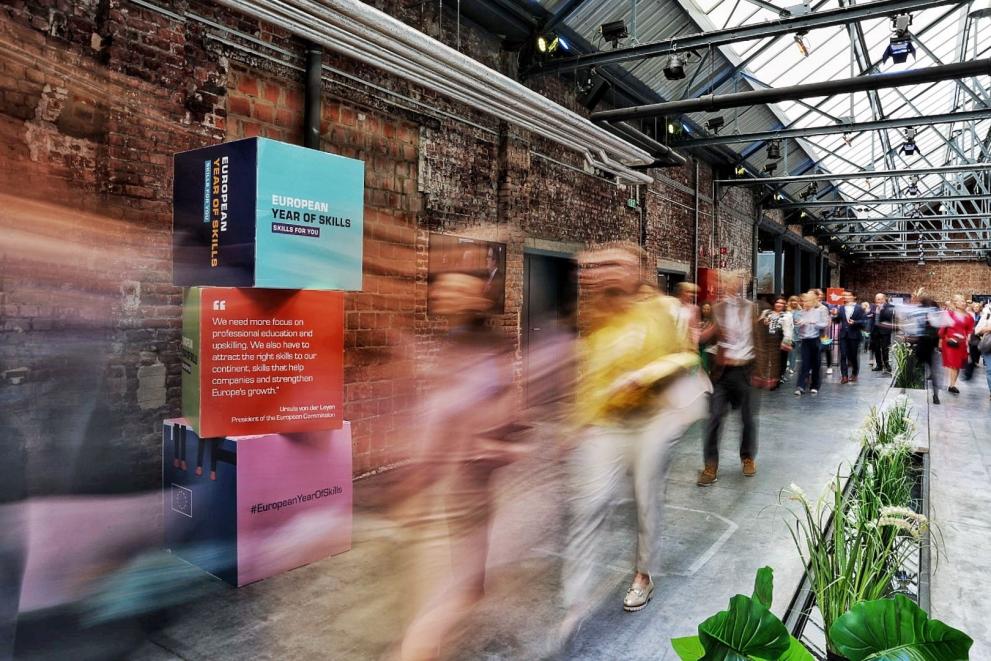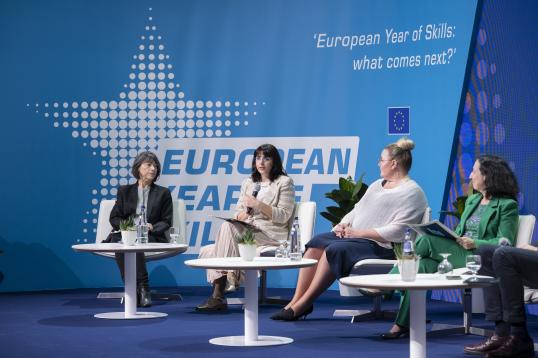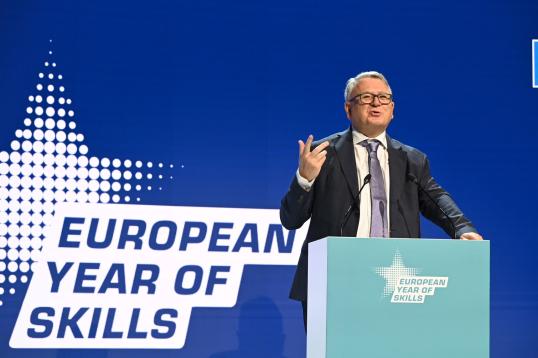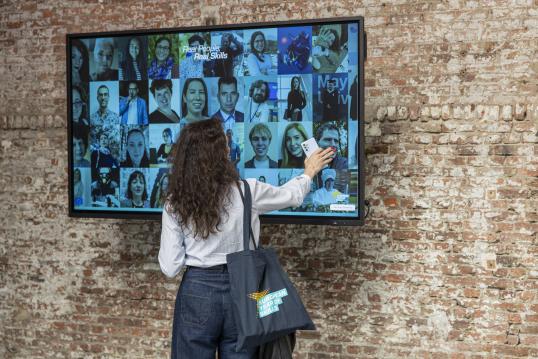
The Year, which is officially drawing to a close on 8 May 2024, marks the beginning of what many speakers called the “Decade of Skills”, and we thank the amazing skills community and everyone who has helped make this Year a collective success.
In her opening remarks, Executive Vice-President Vestager emphasised the evolving job landscape due to digital transition and stressed the importance of continuous upskilling and reskilling, citing the Real People, Real Skills project as inspiration. She praised the European Year of Skills for its proactive approach in facing challenges and providing real solutions, marking it as a collective effort towards a skilled and competitive Europe, setting the stage for a day of reflection and dialogue.
The 50 National Coordinators from 38 countries played a pivotal role in implementing the European Year of Skills across Europe. At the event, representatives from Belgium, Bulgaria, Spain, France, and Finland shared their experiences, highlighting each country’s unique approach to skills development, whereby the Belgian coordinators also took the stage to present the National Coordinators’ statement.
Other panels brought together stakeholders across sectors and focused on promoting sector appeal, accessible education and digital literacy for all, inclusivity in vocational training, and transversal skills development, stressing collaboration between sectors and the need for comprehensive career guidance. Panellists highlighted successful Year initiatives and discussed the importance of adapting training curricula, supporting vulnerable groups, and ensuring a fair green and digital transition. Additionally, speakers in the political panel underscored the Year's impact on skills as a cross-cutting topic, underlining a shared responsibility and advocating for inclusivity, continued investment in training, and reforming basic education to promote vocational training as a career path.
The spotlight was also shone on the efforts of the Pact for Skills and EU Agencies (ETF and Cedefop). Three poetry slam artists from Ireland, Slovenia, and Austria delivered powerful personal messages on skills.
Onsite participants exchanged on the future of skills policies in six parallel discussion groups, focusing on central themes of the Year. There was high level of interaction and many emerging ideas in all groups, such as (1) the importance of increased opportunities for tapping into underused talent, (2) implementing regional/local skills strategy with all key stakeholders, (3) emphasising real impact, (4) establishing a culture of lifelong learning, (5) having a strong and continued collaboration between social partners and national authorities, and (6) recognising the role of compulsory education in nurturing transversal skills.
Commissioner Schmit concluded the event stating that “The push coming from the Year of Skills should be continued and even increased, the spark is there – now we have to get the fire burning.”
The European Year of Skills has provided a platform for dialogue, collaboration, and action. As participants depart, they carry with them a renewed sense of purpose and determination to ensure that skills remain a top priority across Europe, shaping a future where every individual has the opportunity to thrive.
You couldn’t join the event? Check the recording, the full programme, and the video on Real People, Real Skills project.
Details
- Publication date
- 8 May 2024
- Author
- Directorate-General for Employment, Social Affairs and Inclusion



